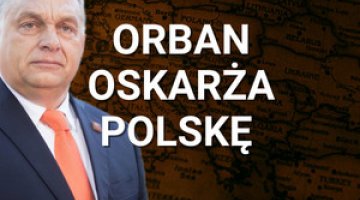Orbán’s self-proclaimed ‘peace mission’ at the beginning of Hungary’s EU Council presidency
In the first days following Hungary taking over the presidency of the Council of the European Union, Prime Minister Viktor Orbán conducted a series of diplomatic visits abroad, referring to them as a ‘peace mission’, which included visits to Ukraine (2 July), Russia (5 July), and China (8 July). During this period, he attended a summit of the Organisation of Turkic States held in Azerbaijan (5 July), and then took part in a NATO summit in the United States (9–11 July).
His meeting with Vladimir Putin, which was kept secret until the last moment, was held in Moscow and sparked particularly harsh criticism from the leaders of EU member states and institutions. The President of the European Council, Charles Michel, and High Representative of the European Union for Foreign Affairs and Security Policy, Josep Borrell, stated that Hungary’s rotating presidency of the Council of the EU does not authorise it to conduct talks with Russia on behalf of Brussels, and that the meeting between the two leaders took place solely as part of bilateral relations. In an interview ahead of his visit to the Russian Federation, Orbán admitted that Budapest had no mandate to conduct peace negotiations on behalf of the EU, although, Putin and China’s leader Xi Jinping welcomed the Hungarian Prime Minister as its representative. In his statements, Orbán praised the “Chinese peace initiative” and criticised the approach of the EU and the US to the war, as well as the plans to increase NATO’s support for Ukraine. He also referred to the NATO summit in Washington as a stop on his ‘peace mission’; during his visit to the United States, he also met Donald Trump.
Commentary
- Orbán is trying to pose as a peace-advocating intermediary and the only EU leader able to conduct talks with both Kyiv and Moscow. However, his vision of the conditions for this peace remains vague and focuses on a ceasefire, while lacking assurances regarding Ukraine maintaining its territorial integrity and sovereignty. At the same time, Hungary’s criticism of the West’s support for Ukraine and the sanctions imposed on Russia suggests that Budapest supports far-reaching concessions to the Kremlin. This is also corroborated by Hungary indiscriminately repeating Russia’s arguments in a letter which Orbán wrote to Michel following his trip to Moscow, as reported by Ukrainska Pravda. Moreover, breaking Putin’s isolation (Orbán is the first EU leader to have visited Moscow since the Austrian Chancellor’s April 2022 visit) is also favourable to Russia, because it familiarises Western public opinion with the prospect of possible talks with Moscow.
- The ‘peace mission’ narrative is mainly targeted at Europe’s radical right parties among which Fidesz has been trying to find allies as part of the Patriots for Europe, a new group in the European Parliament. Posing as a mediator between the sides of the conflict – even if these sides themselves do not view him as such – serves to build Orbán’s political position and counter the accusations of his pro-Russian orientation. The message is also targeted at Donald Trump, as Budapest is betting on his victory in the US presidential election because it views this as an opportunity to quickly end the war and to cease US’s criticism of Hungary (although Orbán’s visit to Beijing could be problematic in the context of the Republicans’ anti-Chinese stance). From the point of view of Hungary’s relations with Ukraine, choosing Moscow as another destination in Orbán’s trip after Kyiv (see ‘Putting on brave faces. Orbán’s visit to Kyiv’) to a large degree undermines the results of the Hungarian Prime Minister’s first visit to Ukraine in 12 years.
- Orbán has used Hungary’s presidency of the Council of the European Union to create an appearance that he was representing the EU as a whole, whereas on the basis of the Lisbon Treaty, which came into effect in 2009, he is not entitled to this role. Moreover, the narrative promoted by Budapest regarding the war is in sharp contrast to Brussels’ stance. Hungary abusing the presidency mandate has sparked a debate in the EU on how to deal with this issue in the next six months. Some member states have decided to lower the rank of their representation at Council meetings chaired by Hungary and proposals have been put forward even to reduce the duration of the Hungarian presidency. These arguments have been boosted by the statements Orbán made during his visit to Beijing, which were openly critical of the EU’s policy.
- The Hungarian Prime Minister’s ‘peace mission’ has been given a lot of publicity in the local pro-government media outlets which present him as a statesman who is fighting to stop the war, even suggesting that he should receive the Nobel Peace Prize. This is intended to enable Fidesz to once again dominate the domestic political narrative in the context of a persistently difficult economic situation and a positive result obtained by a new opposition force in the European Parliament election in June (see ‘Hungary elections: Fidesz’s victory overshadowed by the new opposition’s success’). However, due to the lack of any measurable effects of this ‘mission’ and the increased intensity of Russia’s attacks on Ukraine in recent days, the Hungarian pro-government media outlets are ready to propagate even the most bizarre arguments of Russian disinformation. For example, the ‘Magyar Nemzet’ daily newspaper suggested that the Russian attack on the Okhmatdyt children’s hospital in Kyiv, which occurred on 8 July, was caused by the failure of an American Patriot missile launched by Ukraine.





